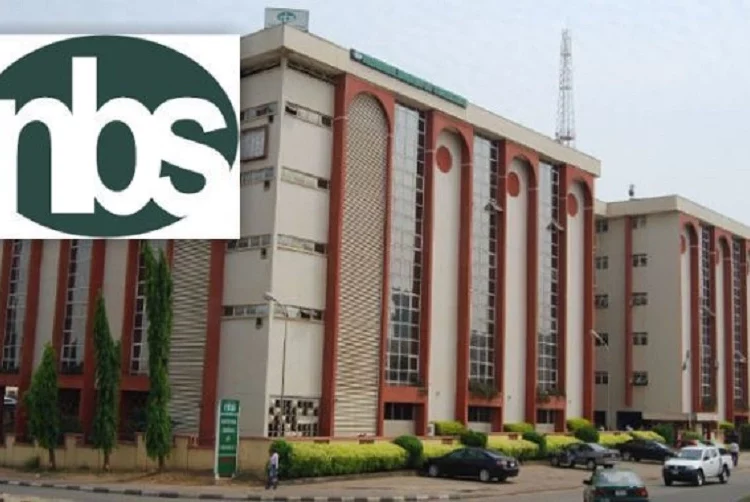The Nigerian economy grew at a slower pace in the first quarter of 2023 as the cash crunch, which attended the country in the first three months in the wake of currency redesign, impacted business activities.
This is even as analysts said the growth of the economy remains uncertain as growth is likely to fall below forecast for 2023.
According to the National Bureau of Statistics (NBS) real GDP for the first quarter of 2023 grew slowly by 2.31 per cent year on year as against 3.52 per cent that was recorded in the last quarter of 2022.
The latest GDP data also show that Nigeria’s manufacturing sector growth has slowed to the lowest in three years on account of a cash shortage that crippled the economy during the period.
While it is the 10th straight quarters positive acceleration in real GDP, it was slower than the 3.11 per cent real growth reported in the first quarter of 2022. The growth outturn is 42 basis points higher than Cordros’ estimate of 1.89 per cent and 54bps lower than Bloomberg’s median consensus 2.85 per cent estimate.
Analysts at Cowry Assets Management attributed the deceleration in growth to the impact of the naira scarcity on aggregate demand, uncertainties about the new administration and existing structural problems.
“Also, the ongoing fuel shortages experienced at the start of the year that brought about disruptions in economic activities and led to higher prices of goods and services; the war in Ukraine which disrupted global trade and the attendant impact of the COVID-19 pandemic which brought about higher unemployment are said to be the driving factors to this slowdown.
“Though, the outlook for the Nigerian economy looks uncertain and filled with less optimism when we consider the anticipated low-impacts from global monetary tightening and soaring inflation as against the experience in 2022.
“With the incoming of a new government, it is expected that market friendly reforms and policies will be implemented. However, if the government can address some of the challenges that it is facing, there is potential for growth to pick up in the coming quarters.
“Nigeria’s growth remains subdued over the past years with an average real GDP growth of 1.45 per cent within the last eight years and majorly dragged by the bane of insecurity and terrorism, low capital inflow and increasing capital flight, corruption, currency devaluations, intensified monetary policy tightening by central banks and unfavourable ease of doing business brought about some of levels of disruptions in economic activities. Amid these negative headwinds, Nigeria needs to achieve GDP growth of over six per cent to achieve more inclusive growth and move closer to its long-run GDP potential,” they pointed out.
A cursory examination of the breakdown of GDP figures showed that the oil sector declined at a slower pace, contracting by 4.21 per cent year on year compared to a 13.38 per cent contraction in Q4 2022.
According to NBS, crude oil production averaged 1.51 mb/d in Q1-23, 1.3 per cent y/y higher than Q1-22 (1.49 mb/d). As a result, the oil sector contributed 6.21% to the total GDP (Q4-22: 4.34%) during the review period.
The non-oil sector maintained its positive growth path but grew moderately by 2.77% y/y in Q1-23 (Q4-22: +4.44% y/y) – the lowest print since Q1-21 (+0.79% y/y). The non-oil sector contributed 93.79% to total GDP (vs 93.37% and 95.66% in Q1-22 and Q4-22, respectively)
Meanwhile, the new GDP report by the NBS, showed that the manufacturing sector grew by 1.61 per cent (year-on-year) in real terms in Q1 2023, down from 2.83 percent in Q4 2022 and 5.89 percent in the same period last year.
The trade sector also slowed to 1.31 percent in Q1, the lowest in two years from 4.54 percent in the previous quarter and 6.54 percent in Q1 2022.
These sectors contributed to the overall decline in Nigeria’s GDP growth as it fell to 2.31 percent in Q1, down from 3.52 percent in Q4 2022 and 3.11 percent in Q1 2021.
“The reduction in growth is attributed to the adverse effects of the cash crunch experienced during the quarter,” the NBS said.
It said although the growth of the industry sector improved to 0.31 percent relative to the 6.81 percent recorded in Q1 2022, agriculture, and the industry sectors contributed less to the aggregate GDP in the quarter under review compared to Q1 2022.
Since the beginning of the year, Nigerians have been buffeted by a chronic shortage of cash caused by the naira redesign policy of the Central Bank of Nigeria (CBN). This has disrupted economic activities and negatively impacted the livelihoods of Nigerians.
Data from the CBN show that the currency in circulation dropped to the lowest level in 14 years and five months to N982.1 billion in February from N1.39 trillion in the previous month.
But it rose by 71.41 percent to N1.68 trillion in March after the CBN moved naira notes from its vault to deposit money banks in response to the Supreme Court order to extend the legal tender status of the old N200, N500, and N1,000 notes to December 31, 2023.
READ ALSO: Headline Inflation Rises To 22.22% As Food Prices Soar
“Every aspect of the economy was affected by the cash crunch. So whether you are a small-scale retailer by the roadside or services, the cash crunch reduced the GDP of the country significantly,” Gabriel Idahosa, deputy president of Lagos Chamber of Commerce and Industry, said.
He said manufacturers were the worst hit because they already carried trunk costs like raw materials and warehouses full of goods.
“So, it is not a surprise that we have such an impact on manufacturers.”
But Idahosa expects the sector to improve in the second quarter as money gradually comes into the economy.
The latest monthly Purchasing Managers’ Index (PMI) by Stanbic IBTC Bank improved to 53.8 last month after contracting in March (42.3) and February (44.7).
Readings above 50.0 signal an improvement in business conditions, while readings below 50.0 show deterioration.
In February, the Manufacturers Association of Nigeria (MAN) told BusinessDay that they are already seeing a drastic reduction of more than 25 percent in sales of locally manufactured products.
“What should ordinarily be a welcome monetary policy to improve the CBN management of naira currency has become enmeshed in tardy implementation and needless disruption of businesses and everyday life of the people,” Segun Ajayi-Kadir, director-general of MAN, said.
A recent report by SBM Intelligence which engaged 46 businesses across the five geopolitical zones showed that 76 percent of business owners were impacted by the naira crunch.
“From egg producers stuck with their produce to rice traders who had to bring down their prices to make sales, most of the business owners interviewed said they were negatively affected by the cash shortage,” it said.





